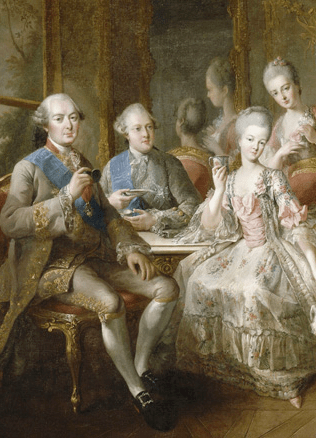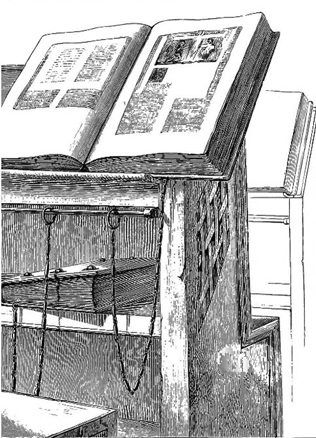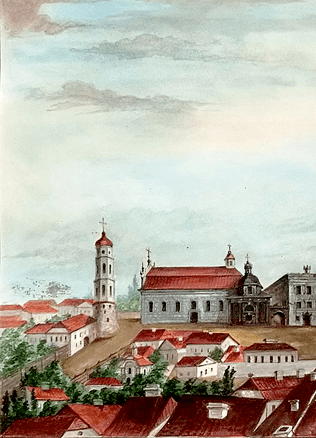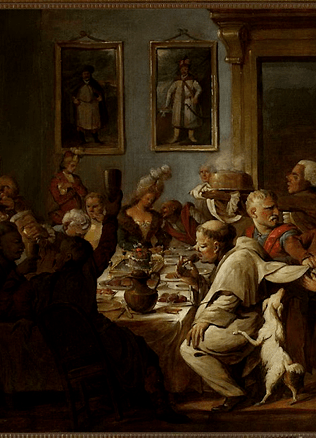How was the business of the Jews original?
The Jewish community in the Grand Duchy of Lithuania was a strong economic factor – it helped new forms of activity and businesses to appear, encouraged the economic expansion and the development of the economy of cities and small towns. It is not surprising that Christian town-dwellers saw the Jews as their main rivals in all spheres of the economic life of the town. Social and economic changes, political turmoil and needs of the society influenced the activity of the Jews as businesspeople. These factors, the restrictions imposed, unequal competition (even among themselves) encouraged the Jews to look for more profitable activities and their more flexible and dynamic forms
The first trade agents and corporations
When the town-dwellers began to restrict trade of the Jews in towns, peddling (when goods are offered to customers at their houses) began to gain in popularity. Having limited the possibilities of the Jewish craftsmen, services were started to be provided directly at the customer’s place. In the 17th century, after the Church had ousted the Jews from business of large credits, trade by lending emerged as an alternative (it survived in the interwar Lithuania too, and was known as trade bargan (on credit)). The Jews in the Grand Duchy of Lithuania disseminated skills of trade and crediting, as well as crafts that satisfied the needs of the community. The Jews dominated the sphere of crediting for a long time (the procedure for taking a pledge established in the privilege of Vytautas the Great in 1388 became the source of the right of the pledge formed in the GDL and established in the Statutes). From this point of view the situation in the Grand Duchy of Lithuania did not differ from other Christian European countries. Crediting is a “convenient” business, and it is not difficult to combine it with other forms of economic activities by putting “free cash” into circulation. All over Europe crediting was the only activity accessible to the Jews. The negative attitude of the Church, which sometimes threatened even with excommunication, towards making money from money contributed to the development of this activity. The peculiarity of the socio-economic development of the Grand Duchy of Lithuania (and the whole of the Polish-Lithuanian Commonwealth) is that the Jews developed craft industry, which was not popular in other countries or in which only very few people engaged.
The economic activity of the Jews was characterised by combining several businesses, for example, a tradesman, a craftsman also granted credits or engaged in market-gardening in town.
The commercial activity was common even to the rabbi; women also acted as craftswomen or tradeswomen. Seeking to concentrate capital to rent the state’s monopolistic spheres, most probably the Jews were one of the first to unite into groups of business stakeholders in the 15th and at the beginning of the 16th century.
Specific crafts of the Israelites
Original needs of the members of the community related to a traditional way of life and unsatisfied in any other ways was one of the distinguishing features of the Jewish business and created preconditions for the intensive development of craft industry of the Jews (in the 18th century more than a half of the Jews residing in towns engaged in crafts). Jewish artisans and trades people had a target group of customers with peculiar needs, its existence was important to businesses, which helped to fulfil the requirements of the Israelites (preparation of Kosher food, meat, making clothes meeting the requirements of religion, production of ritual supplies, etc.). In the historical perspective the Jews were left with the possibility to serve people of the same religion though town dwellers tried to restrict it, encouraged the development of the Jewish crafts. Though officially it was declared that the Jews could engage in the crafts of any sphere, the reality in the Grand Duchy of Lithuania was different. The guilds of craftsmen-town dwellers formed on the confessional principle that operated in towns did not only restrict but also prohibited the activities of the Jewish artisans who due to religion that they practiced could not belong to them. Seeking to represent their rights better, following the example of the town dwellers the Jewish craftsmen began to unite into guilds at the beginning of the 17th century. It is true, as compared with Poland, the Jewish guilds in the Grand Duchy of Lithuania were created much slower. Perhaps the Jewish guilds of dressmakers established in Grodno in 1652 can be regarded as the first guild of the Jewish artisans in the Grand Duchy of Lithuania.
Do You Know?
The English aristocrat William Cox, 1764–1837, after his visit to the Polish-Lithuanian Commonwealth in the second half of the 18th century wrote in his diary the following: “If you ask for an interpreter, they will bring you a Jew, if you enter an inn, its owner will be a Jew, if you needed a post horse, a Jew would see to it and would give you a ride, if you wanted to buy something a Jew would be your mediator.”
Pioneers of bootlegging
Economic relations between the noblemen and the Jews were complicated: the Jews who administered and rented estates of the noblemen of parts thereof, working as economic affairs confidential agents were allies of the nobility, however, their interests clashed when they competed for the possibility to rent the objects of the state’s monopoly (customs, levies and the like). Estate rent institute, alongside trade, was the activity where the Jews occupied the position of a mediator. In case of the estate rent the Jew-leaseholder became a mediator between the owner and the town dwellers and the peasants, in trade the Jews acted as mediators between the manufacturer and cultivator and the consumer of the product (the Jews constituted the majority of peddlers in the markets of many towns thus enlivening the market).
The effect of the Jewish leaseholders and administrators of the estate (in the 18th century about one fourth of the Jews of the Polish-Lithuanian Commonwealth engaged in this activity) on the economy of the country is assessed in the positive. It is thought that under the conditions of serfdom economy it was the Jews who managed to activate the serfdom economy at least temporarily.
The Jews who were related to the administration of the estates changed the purpose of the cereals crops, which were the main export goods for a long time and became surplus due to changes in the market – they were started to be used for production of alcohol that was gaining an ever increasing popularity in the lower strata of the society alongside beer.
Though business of the Jews was noted for its dynamic character sometimes they had to yield their dominant positions in one or another sphere of business and change its forms. The Jews were integrated in the economic system of the Grand Duchy of Lithuania, were well established in the sphere of services. Success of the Jewish business should not be overestimated (as was done by their contemporaries), there had never been many influential and financially capable Jewish businesspeople, a large number of them were impoverished. The fact that the Jews were valued as main rivals of the town dwellers strengthened the society’s unfavourable imagination and sensitivity most.
Jurgita Šiaučiūnaitė-Verbickienė



